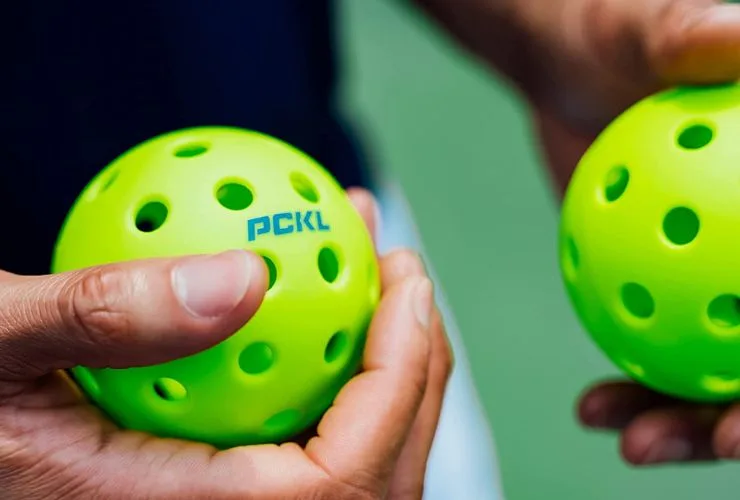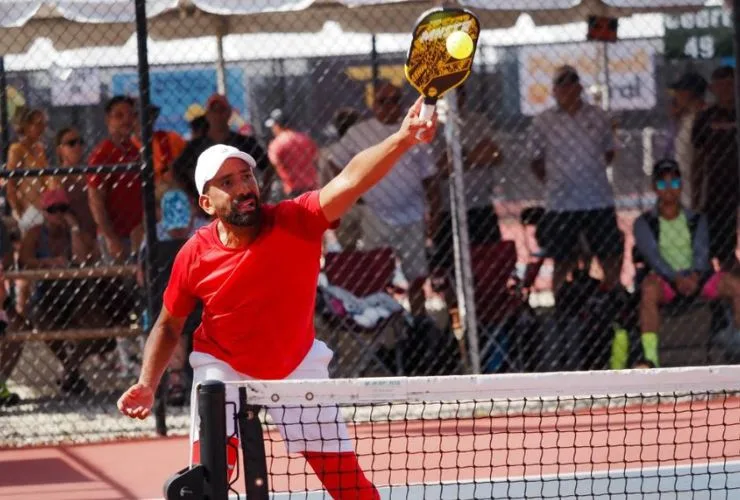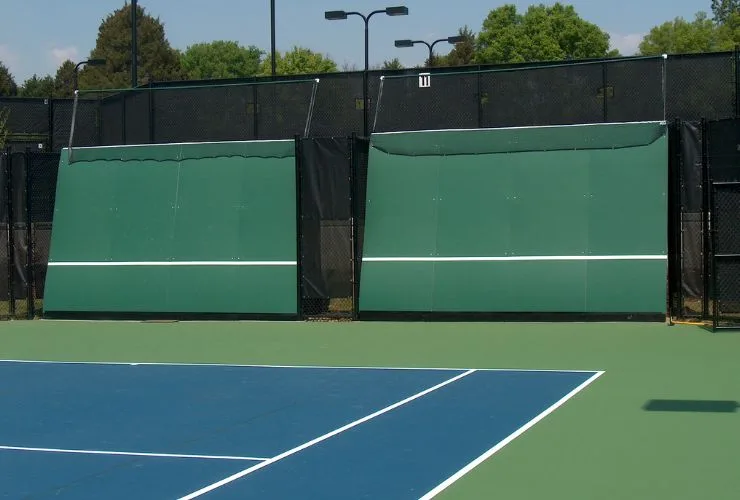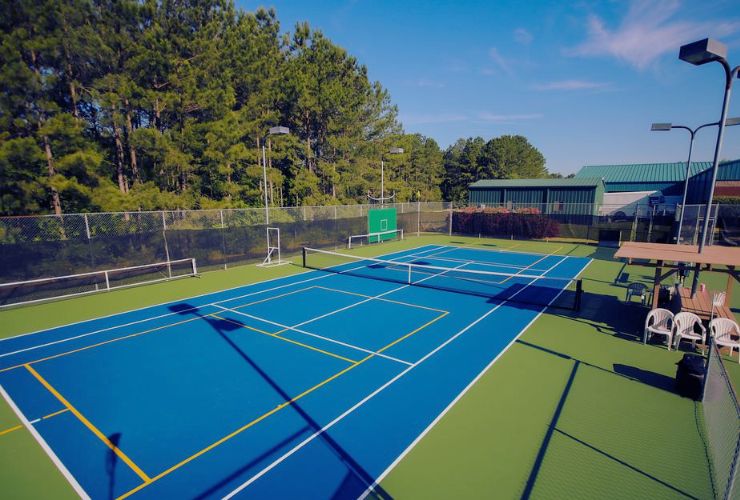What Are The Health Risks Of Playing Pickleball?
Are you a fan of the increasingly popular game of pickleball? This fast-paced sport has taken the world by storm ever since its introduction and is now one of the most popular racquet sports across all age groups.
But as with any physical activity, players should be aware of potential health risks associated with playing pickleball. In this blog post, we will discuss what these potential health risks are. So keep reading if you want to stay informed on the latest news about pickleball and its health implications in 2023!
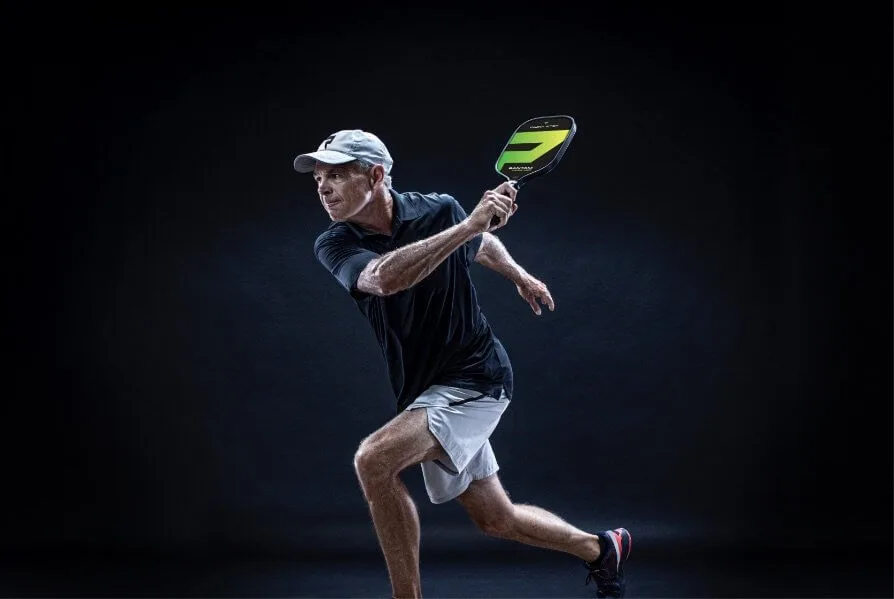
What Are The Health Risks Of Playing Pickleball?
Pickleball is a fun and low-impact sport that’s becoming increasingly popular among people of all ages. However, as with any physical activity, some health risks are associated with playing pickleball. Some common injuries include calf strains and tears, flares of knee arthritis, herniated disks in the lower back, meniscus tears, MCL and LCL strains, plantar fasciitis, hamstring strains, Achilles injuries and Ankle sprains.
Calf strains and tears
One of the most common injuries that pickleball players experience is calf strains and tears. The calf muscle group is responsible for powering movements such as jumping, running and pushing off the ground. These muscles can become overstretched or overloaded during intense activity, resulting in small tears or larger ruptures.
Symptoms of a calf strain or tear include sudden pain at the back of the lower leg, swelling, bruising, and difficulty walking. If left untreated, calf strains and tears can lead to more serious health risks, such as deep vein thrombosis, which occurs when blood clots form in deep veins causing swelling and discomfort.
Flares of knee arthritis
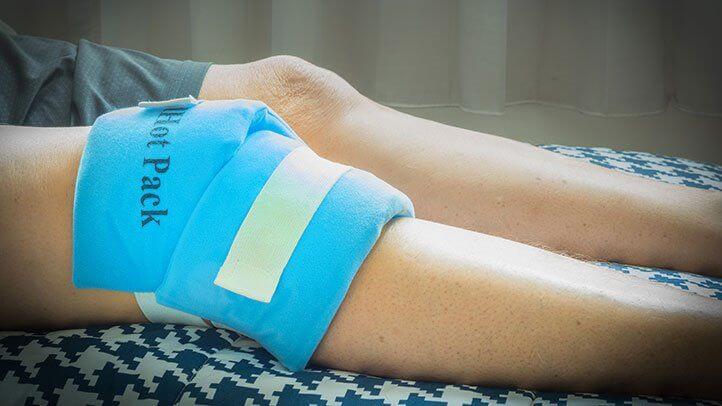
One of the most common health risks associated with playing pickleball is knee arthritis. Knee arthritis refers to the inflammation and degeneration of the cartilage in the knee joint, leading to pain, stiffness, and reduced mobility.
The flares of knee arthritis can be sudden and debilitating for those who suffer from it. The condition can make playing pickleball difficult, if not impossible, for some individuals. Many people are forced to give up their favorite sport altogether due to its impact on their knees. However, there are ways to manage knee arthritis so that it does not interfere with your enjoyment of pickleball or any other physical activity you love.
Herniated disks in the lower back
Herniated disks in the lower back can cause severe pain and discomfort, affecting an individual’s overall quality of life. It is a condition that occurs when the soft tissue inside the spinal column protrudes through a crack in the harder outer layer. Various factors, such as age-related degeneration, trauma to the spine, or excessive strain on the lower back, can cause a herniated disk.
Playing pickleball, a popular sport amongst adults and seniors could also pose a risk of developing herniated disks in the lower back. This game’s fast-paced, high-intensity nature can put significant pressure on the lumbar region of the spine, leading to injuries over time. Additionally, players who are overweight or have poor posture may be at higher risk for developing herniated discs while playing pickleball.
Meniscus tears
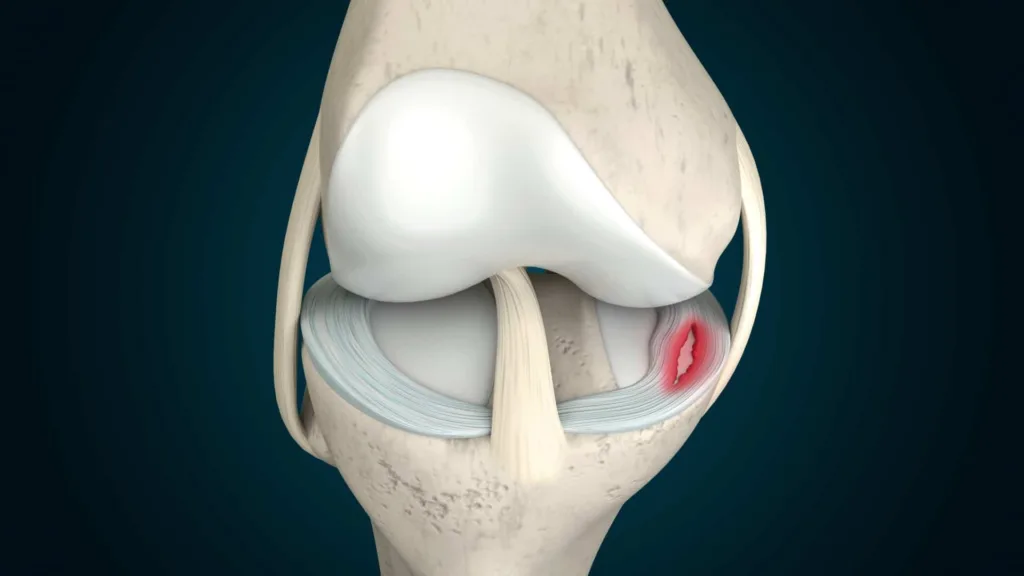
The meniscus is a cartilage piece that cushions between your thigh bone (femur) and your shinbone (tibia). Meniscus tears occur when there’s damage to this cartilage due to twisting or sudden movements during physical activity like pickleball. The symptoms of a meniscus tear can include pain, swelling, stiffness, and difficulty moving the knee.
Plantar fasciitis
This painful foot condition affects the thick band of tissue that runs from your heel to your toes, known as the plantar fascia. When this tissue becomes inflamed, it can cause sharp pain in your heel or arch and make walking difficult.
Plantar fasciitis can develop gradually over time or suddenly after a strenuous activity like pickleball. It’s often more prevalent among older adults, people who are overweight, and anyone who spends long hours on their feet. Plantar fasciitis can lead to chronic pain and discomfort that affects your daily life if left untreated.
Hamstring strains
A hamstring strain occurs when the muscles at the back of your thigh are stretched or torn. Hamstring strains can be caused by several factors, including overuse, lack of conditioning or warm-up exercises, and inadequate stretching before playing.
Symptoms may include pain in the back of the thigh or buttocks, swelling, stiffness, and difficulty walking or standing. If left untreated, hamstring strains can cause permanent damage to your muscles and joints, leading to chronic pain.
Achilles injuries
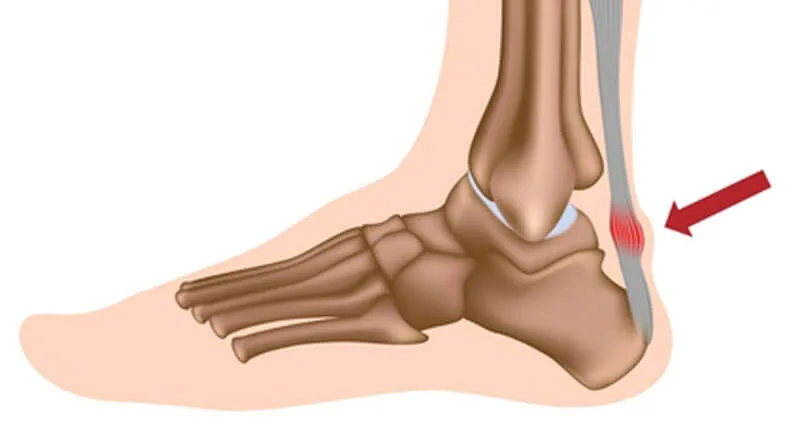
This injury occurs when the Achilles tendon, which connects your calf muscles to your heel bone, becomes inflamed due to overuse or excessive strain.
Achilles injuries can be quite painful and debilitating, making it difficult for players to move freely on the court or even walk comfortably off-court.
Additionally, if left untreated or not managed properly, this injury can worsen and result in a partial or complete rupture of the Achilles tendon – a more severe condition that requires immediate medical attention and lengthy rehabilitation. Therefore, players must understand how to prevent this type of injury while enjoying their favorite sport.
Ankle sprains
Ankle sprains are a major health risk associated with pickleball. These injuries can be painful and may prevent players from participating in their favorite activity for weeks or months.
Ankle sprains occur when the ligaments surrounding the ankle joint are stretched or torn due to excessive twisting or rolling of the foot. While most people recover from ankle sprains with proper rest and rehabilitation, severe cases can lead to chronic pain and instability in the joint.
Frequently Asked Question
Is pickleball hard on joints?
The repetitive movements required on the hardcourt can take a toll on your body, especially if you’re playing for extended periods.
The lateral movements and quick direction changes in pickleball can lead to joint pain and discomfort. The impact of running and jumping on the hard surface of the court can cause further strain on your knees, ankles, hips, and lower back. Additionally, the constant swinging motion in hitting the ball puts pressure on your shoulders and wrists.
Is pickleball good for your heart?
Regular pickleball play can help control or improve many risk factors associated with heart disease, hypertension, and stroke. This is because pickleball involves constant movement and aerobic exercise, which gets the heart pumping and increases blood flow throughout the body.
As players move around the court, they engage in cardiovascular activity that helps strengthen their heart muscles while reducing their risk of developing chronic diseases.
Why do my knees hurt after pickleball?
If you’re an avid pickleball player, you may have experienced knee pain or discomfort after playing a game. This often happens due to the effects of gravity and ageing on the joints.
As we age, our joints become less flexible and are more prone to wear and tear. When we engage in high-impact sports such as pickleball, this wear, and tear can result in pain and discomfort.
Furthermore, when we play pickleball, we constantly move around on a hard surface, putting pressure on our knees. This pressure can cause inflammation and soreness in the knees, resulting in pain after playing for extended periods.
What Are The Health Risks Of Playing Pickleball Conclusion
It is clear that playing pickleball has many health benefits, such as improved coordination and balance, but it also comes with some risks. As a result, anyone considering playing pickleball should understand the potential health risks and take proper safety precautions to ensure a safe game.
It is important to consult with a medical professional before starting any new physical activity, especially one that involves a lot of running and jumping, like pickleball.

